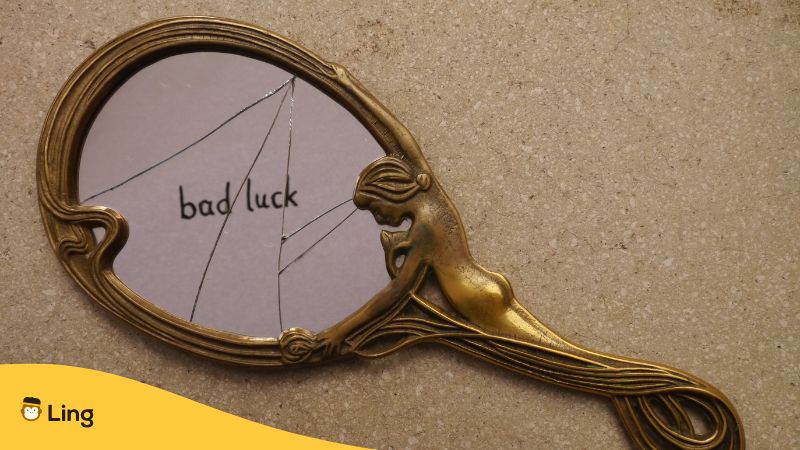So you’ve set your eyes to explore the sights and culture (and everything else you’ve witnessed in the many Korean dramas you’ve watched) of South Korea. But aside from the language, something else has piqued your curiosity – Korean superstitions and other beliefs. Well, you’re already on the path to mastering the Korean language; why not sprinkle some cultural superstitions into the mix? Let’s demystify these superstitions and learn some basic Korean words and phrases as well. Let’s begin!
What On Earth Are Superstitions, Anyway?
Superstitions, you say? They’re like those quirky beliefs, sometimes with accompanying rituals, that people hold on to, often without scientific evidence. Intriguingly, superstitions often reflect the core values and beliefs of a society. They will make it easier for you to grasp the values, fears, and hopes that a society and its people cling to. This also applies in Korea, where such beliefs are apparent in everyday life.
Why bother with superstitious beliefs? Well, my friend, they’re like the secret spices mixed into Kimchi or the flavors that make a “Samgyeopsal” (Korean barbecue) meal tasty and aromatic. Learning about Korean superstitions, even in our modern society, can help you connect with the locals, understand their thinking, and even avoid accidental cultural oops. Plus, it’s just plain fun!

The Cultural Context Of Korean Superstitions
Korea is a melting pot of religious influences, including Confucianism, Buddhism, and Shamanism. Most Korean traditions, including the worshipping of ancestors, were shaped by Confucianism and its emphasis on hierarchy and respect for elders. Buddhism influences Korean beliefs about karma, reincarnation, and a deep connection to nature. Meanwhile, Shamanism holds the belief that shamans intermediate between the living and the spirit world.

Unlocking The Mysteries Of Korean Superstitions
Now that we’ve started with some of the most interesting parts about how Korean culture came to be, it’s time to understand the common Korean superstitions. So prepare yourself for a cultural whirlwind!
Lucky And Unlucky Numbers
In South Korea, numbers aren’t just for counting; they’re loaded with meaning.
- 3 (삼, sam). This number is a superstar in Korean superstition, symbolizing life’s crucial aspects: heaven, earth, and humanity. It’s considered lucky and can attract good fortune.
- 4 (사, sa). Ever looked for the fourth-floor button in an elevator? Here’s the catch – the pronunciation of the Korean word for number four sounds like “death” (사, sa). So, you’ll find many elevators skipping the fourth floor in many buildings, which is considered an unlucky number that can bring misfortune.
- 8 (팔, pal). Much like in other cultures, 8 is a symbol of wealth and prosperity in Korea. It’s a Korean superstition (and other countries) to associate 8 with financial success.
Colors
Many Koreans believe that colors carry deep cultural significance:
- Red (빨간색, ppalgansaek). The color of happiness and celebration, you’ll often see it at weddings and other joyful occasions.
- White (하얀색, hayansaek). White is for funerals, symbolizing purity and mourning.
- Black (검은색, geom-eunsaek). It’s not just for formal wear; black is considered unlucky and associated with bad luck and death.
Animals
Koreans are a superstitious bunch when it comes to animals:
- Magpies (까치, kkachi). Seeing a magpie is believed to bring good news or good luck.
- Bats (박쥐, bagjwi). Bats aren’t seen as bloodsucking creatures of the night here. In Korea, they symbolize happiness and longevity.
Other Common Korean Superstitions
Here are the other beliefs many Koreans believe will either bring good luck or bad luck:
- The superstition that you will go blind after touching a butterfly and then touching your eyes is something common not only in Korea but in many countries as well.
- Writing someone’s name in red ink (living person) can bring harm or even death. This is because Koreans only write someone’s name in red ink when the person has passed.
- Most locals don’t wash their hair on New Year’s Day because it is believed to wash away the good omen.
- It’s bad luck to put a mirror near the front door.
- Avoid whistling at night; whistling at night summons spirits to follow wherever you go.
- Cutting your nails at night will attract mice to eat the clippings, which will turn them into humans.
- Your partner will leave you when you give them a pair of shoes as a gift. So, if you want the relationship to last, giving shoes is a no-no.
- You cannot serve your partner chicken wings because they might fly away and land in another lover’s arms. Sounds similar? Yes, this superstition about chicken wings seems to have taken its context from the shoe-giving belief.
- Koreans eat seaweed soup during their birthdays for good luck. But they avoid seaweed soup during exams because they believe it will cause all the learnings to slip in a student’s mind.
- Eating sticky food is the opposite of eating seaweed soup during exams. Traditional Korean taffy or glutinous rice cake will make knowledge stick to the students’ minds so they can pass the test.
- Dreaming of pigs can bring fortune, wealth, and fertility.
- Eating red food during the coldest day of the year or the winter solstice can prevent bad health and the wandering of evil spirits.
Words Related To Korean Superstitions
Now let’s learn some more by going through these words related to superstition that brings bad luck or good omen:
| English | Korean Script | Korean Pronunciation |
| Superstition | 미신 | Misin |
| Lucky | 행운 | Haeng-un |
| Unlucky | 불행 | Bul-haeng |
| Ritual | 의식 | Ui-sik |
| Red | 빨간색 | Ppal-gan-saek |
| Funeral | 장례 | Jang-nye |
| Marriage | 결혼 | Gyeol-hon |
| Bad luck | 나쁜 운 | Nappeun Un |
| Good omen | 길운 | Gilun |
| Four-leaf clover | 네잎클로버 | Ne-ip Keulrobeo |
Learn Korean Using Ling
If you enjoyed the ride about Korean superstitions, let me introduce you to a fantastic tool that can help you learn about the other aspects of Korea and its language. I’m talking about Ling. It’s a language learning app designed to make picking up a new language not only effective but also enjoyable.
What sets Ling apart is its emphasis on “engagement.” It developed activities and games to ensure its users will find it hard to ignore it once they have tried using the app. And the result? A more well-versed you! So, what are you waiting for? Download Ling today on the App Store or Play Store and embark on your exciting journey to learn Korean and more.



































































